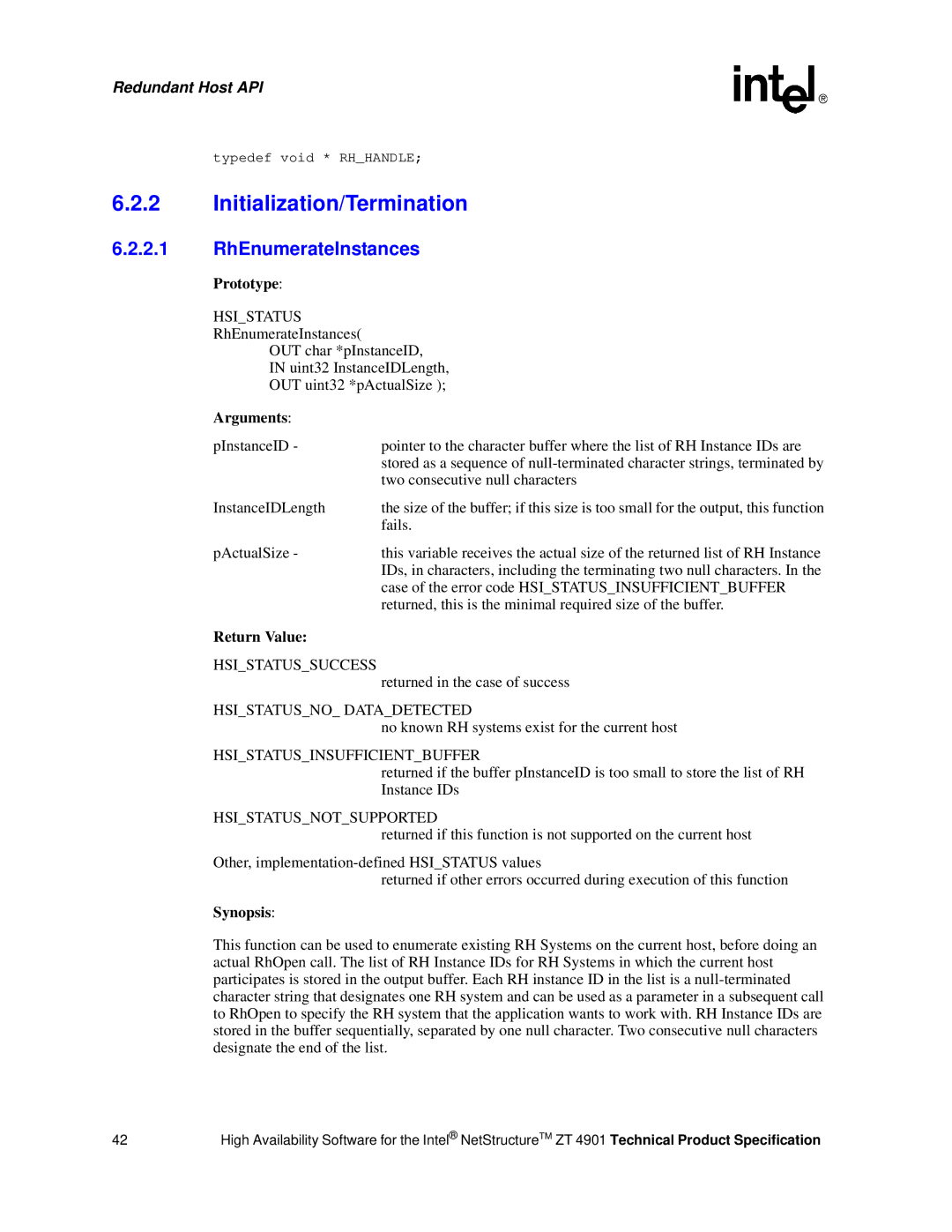Redundant Host API
typedef void * RH_HANDLE;
6.2.2Initialization/Termination
6.2.2.1RhEnumerateInstances
Prototype:
HSI_STATUS
RhEnumerateInstances(
OUT char *pInstanceID,
IN uint32 InstanceIDLength,
OUT uint32 *pActualSize );
Arguments: |
|
pInstanceID - | pointer to the character buffer where the list of RH Instance IDs are |
| stored as a sequence of |
| two consecutive null characters |
InstanceIDLength | the size of the buffer; if this size is too small for the output, this function |
| fails. |
pActualSize - | this variable receives the actual size of the returned list of RH Instance |
| IDs, in characters, including the terminating two null characters. In the |
| case of the error code HSI_STATUS_INSUFFICIENT_BUFFER |
| returned, this is the minimal required size of the buffer. |
Return Value: |
|
HSI_STATUS_SUCCESS
returned in the case of success
HSI_STATUS_NO_ DATA_DETECTED
no known RH systems exist for the current host
HSI_STATUS_INSUFFICIENT_BUFFER
returned if the buffer pInstanceID is too small to store the list of RH Instance IDs
HSI_STATUS_NOT_SUPPORTED
returned if this function is not supported on the current host
Other,
returned if other errors occurred during execution of this function
Synopsis:
This function can be used to enumerate existing RH Systems on the current host, before doing an actual RhOpen call. The list of RH Instance IDs for RH Systems in which the current host participates is stored in the output buffer. Each RH instance ID in the list is a
42 | High Availability Software for the Intel® NetStructureTM ZT 4901 Technical Product Specification |
